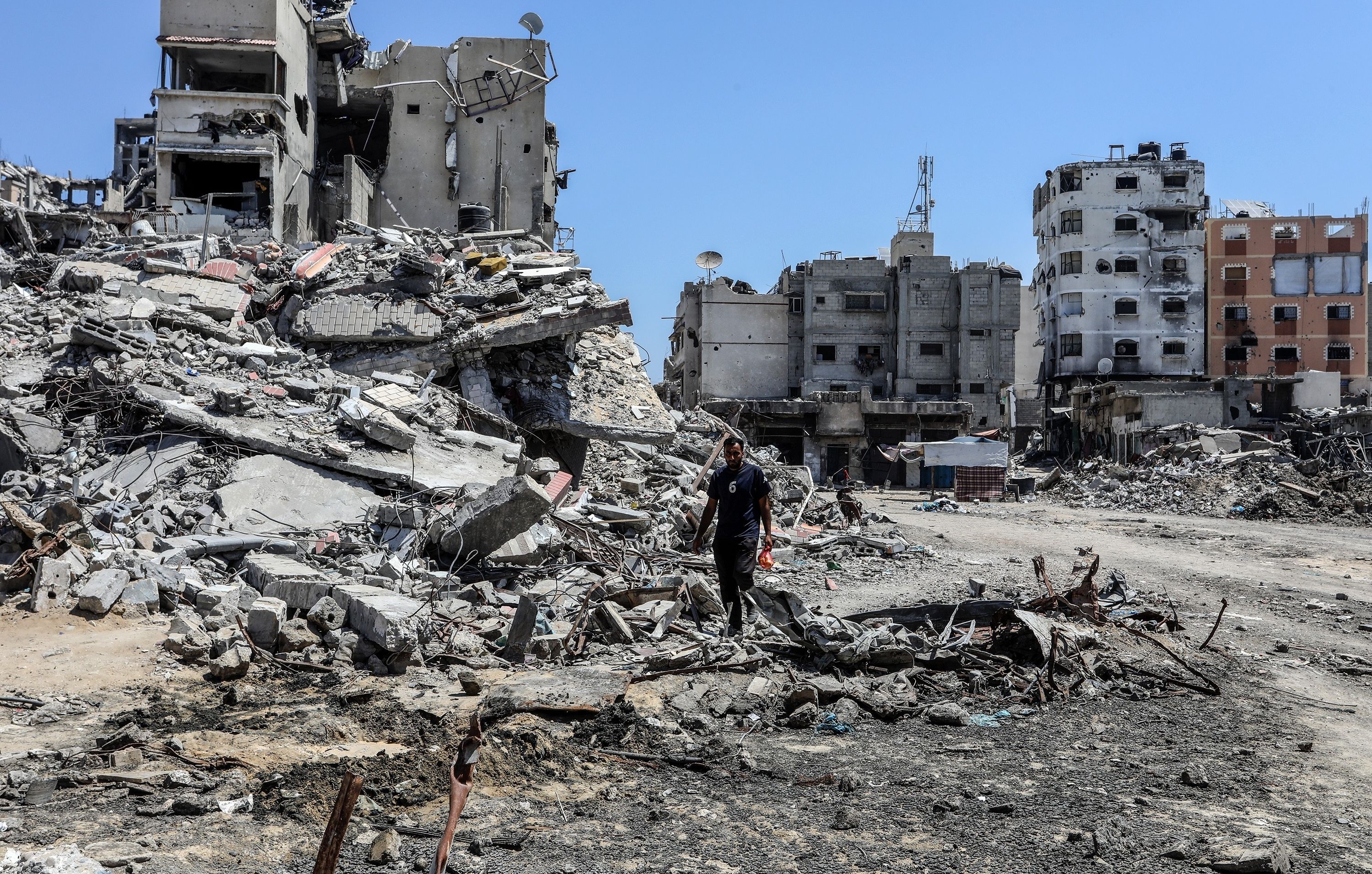Ahead of the first anniversary of the start of the war in Gaza, a group of 99 American health workers who served in Gaza has called on the Biden administration to halt arms transfers to Israel because of the devastating effects of Israel’s military campaign and siege on the civilian population.
The health workers attached a detailed appendix to their letter that documents the massive loss of life caused by the war, including the Israeli government’s policy of deliberate starvation. According to their conservative estimate, at least 118,908 people have been killed in Gaza through direct violence, starvation, and disease, and they say that the real death toll is almost certainly higher than that. This estimate represents a loss of life nearly three times greater than the current official count from Gaza’s Ministry of Health.
This letter is a wake-up call to our government to stop acting as an accomplice to the slaughter and starvation of civilians.
The letter’s signatories are witnesses to the human cost of one year of war and man-made famine, and they are imploring the president and vice president to end the policy of unconditional support that has led to this catastrophe. In the letter, first reported by HuffPost, they challenged President Biden and Vice President Harris to confront the horrors that their policy has unleashed: “We wish you could hear the cries and screams our consciences will not let us forget. We cannot fathom why you continue arming the country that is deliberately killing these children en masse.”
The war in Gaza has been extraordinarily dangerous for civilians. The Israeli government’s indiscriminate bombing has reduced the cities of Gaza to rubble and left the civilian infrastructure of the Strip in ruins. In addition to forcibly displacing almost the entire population, the Israeli government has been blocking the delivery of humanitarian aid for the duration of the conflict. According to a joint statement of humanitarian NGOs last month, Israel is still blocking the delivery of 83% of food aid.
The U.S. government has been aware of the blockage, but that has not led to any change in policy. As ProPublica confirmed in a new report last month, USAID and the State Department’s refugees bureau both concluded in the spring that Israel was deliberately blocking aid. Secretary of State Antony Blinken ignored their conclusions and certified the opposite.
The effects of this policy of starvation have been staggering. As the health workers say in the appendix, “The fact that Palestinians in Gaza are so hungry that many have died, or that this is the result of deliberate Israeli policy, is not in dispute. However, the scale of this starvation is not widely appreciated.”
They say that it is likely that 62,413 people have died of starvation and related complications between the start of the war and the end of September 2024. Nearly half a million people in Gaza are still in catastrophic food insecurity, and another 745,000 are experiencing emergency food insecurity, so the number of people killed by starvation is bound to increase if things remain as they are.
Oxfam also released its own report this week which found that the war in Gaza has been deadlier for women and children in its first year than any other conflict around the world in the last 20 years. According to Oxfam, “The record number of women and children killed in Gaza does not include those among nearly 20,000 people who are either unidentified, missing or entombed beneath rubble.” However bad we currently think the disaster in Gaza is, the reality is sure to be worse when there is a full accounting of the losses.
The Biden administration has sometimes paid lip service to Palestinian civilian casualties in Gaza, but it has never treated the humanitarian crisis there with the urgency or priority that it demands. When top U.S. officials won’t acknowledge that Israel is blocking the delivery of aid, they cannot address the real cause of mass starvation. Because the administration refuses to use any leverage to alleviate the crisis, the U.S. has effectively become an accomplice to Israel’s starvation crimes against the people of Gaza.
There must be a full accounting of the death and destruction that the U.S. has supported in Gaza so that the policymakers who are responsible can be held accountable for what they have done. It is also necessary for Americans to understand what our government’s policy has wrought. The letter from the health workers is an important contribution to counting the terrible human cost of a war that the Biden administration has enabled from the beginning.
The innocent victims of our policies are often invisible and forgotten in our foreign policy debates. That must change if we are ever going to rein in and then end our government’s destructive behavior. Americans have an obligation as citizens to learn about the true costs of what our government does abroad. We also have a responsibility to challenge monstrous policies when they inflict so much suffering and death on another nation as our government’s policy of supporting the war in Gaza has done.
The evidence that the health workers have collected in the appendix paints a clear picture of an Israeli government unbound by international law. Under U.S. law, the Biden administration is obligated to halt weapons transfers to that government because of the many violations it has committed. The very least that our government can do now is to follow the law and cease fueling the conflict.
- Media amplified US, Israeli narrative on Palestinian deaths ›
- Netanyahu: Thank you America for your service | Responsible Statecraft ›
- Critics: US ultimatum to Israel a 'cynical' election ploy | Responsible Statecraft ›
- Advocates demand Biden de-classify Ukraine strategy | Responsible Statecraft ›
- Israeli ethnic cleansing nears completion in northern Gaza | Responsible Statecraft ›
















